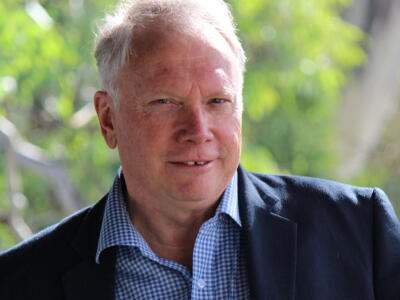ANU early career researchers awarded $8m in ARC funding
Posted on
Research exploring rainfall extremes in Australia, how galaxies form stars, and the way music is perceived across different cultures are among projects led by early career researchers at The Australian National University (ANU) to receive federal funding.
Researchers from ANU received a total funding of $8 million across 17 projects in the latest round of the Australian Research Council (ARC) Discovery Early Career Researcher Award (DECRA) scheme.
ANU Deputy Vice-Chancellor (Research and Innovation) Professor Lachlan Blackhall congratulated the 17 funding winners on this achievement.
“The breadth of research at the ANU showcases the talent of our early career researchers – from deepening our understanding of sea-level changes through Earth's mantle contributions and improving policy engagement for young people with disabilities and young carers,” he said.
“This success shows the contributions our ECRs are making in tackling complex challenges across various fields. I’d also like to acknowledge the hard work of all applicants in this highly competitive process. Well done, and I look forward to seeing the continued contributions of all involved.”
ARC Acting Chief Executive Officer, Dr Richard Johnson said that well as boosting Australia’s research and innovation capacity, the DECRA projects result in new technologies and ideas, leading to new jobs, economic growth and ultimately improved quality of life for Australians.
“The ARC Discovery Program has an impressive track record in generating new knowledge that addresses a significant problem or gap in knowledge, and it offers exciting opportunities for Australia’s promising early career researchers to develop in supportive environments,” he said.
ANU projects to receive DECRA funding:
- Dr Aditya Balasubramanian – Roads and road transport in India: An environmental and economic history ($477,039).
- Dr Dylan Campbell – Worlds unseen: Inferring hidden structure with generative vision models ($472,431).
- Dr Chaohao Chen – Mid-infrared imaging with visible detectors at room temperature ($475,614).
- Dr Laura Davy – Listenability: responsive policymaking for young people ($487,656).
- Dr Georgina Falster – Quantifying Australia's long-term risk of rainfall extremes ($438,335).
- Dr Siavash Ghelichkhan – Sea level in the mid-Pliocene warm period: Unveiling Earth's mantle effects ($474,781).
- Dr Courtney Hilton – Variation in music perception and its psychological and cultural correlates ($486,231).
- Dr Melanie Kaasinen – Resolving star formation at its peak ($484,931).
- Dr Kirill Koshelev – Chiral photonics with resonant meta-structures ($397,419).
- Dr Mathieu Leclerc – Shifting foodways: biomolecular archaeology and oral traditions in Vanuatu ($486,506).
- Dr Noelia Martinez Rey – Unveiling the full sky with advanced Laser Guide Star technology ($480,121).
- Dr Fabian Muehlboeck – Making efficient sound gradual typing fit for industry adoption ($477,831).
- Dr Amit Seta – The origin of magnetic fields in galaxies ($488,618).
- Dr Alexander Skeels – How environmental change drives the origin and decline of biodiversity ($486,675).
- Dr Elise Stephenson – Gender inequalities at the frontier: AI, space and climate action ($483,177).
- Dr Hendry Susila – Decoding plant organellar signaling under heat stress ($484,087).
- Dr Michael Taleski – Unlocking yield gains with a new pathway targeting plant nitrogen usage ($467,603).
More details are available at the ARC website.
You may also like
ANU criminologist awarded Balzan Prize for restorative justice
Distinguished Professor John Braithwaite from The Australian National University (ANU) has been awarded the 2024 International Balzan Prize for Restorative Justice.
ANU researchers receive prestigious Maitri Grants to strengthen Australia-India collaboration
Two ANU researchers have been awarded Maitri Scholar grants to advance groundbreaking research that strengthens ties between the two nations.

